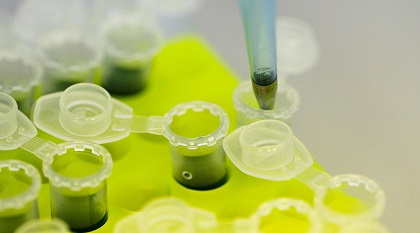Many people suffer Group A Streptococcus infections, typically as children when they get strep throat. In extreme cases, the bacteria can lead to necrotizing fasciitis, a flesh eating bacteria. A recent discovery, however, could soon lead to a vaccine.
Group A Streptococcus is responsible for a wide range of maladies, from strep throat to toxic shock syndrome to necrotizing fasciitis. It’s one of the leading causes of death in the world, killing an estimated 500,000 people globally, according to the World Health Organization, according to RT.
But a team of researchers out of the University of California, San Diego may have found a breakthrough in the form of a protein that interacts with most of the bacteria’s strains.
A newly discovered sequence of proteins coating group A strep could hold the key to killing it once and for all. The proteins, known as M proteins, are important, because when group A strep enters the human body, it disguises itself by latching on to another protein called C4BP. Once the two bind together, the body’s immune system calls off the troops and stops fighting off the bacteria.
“The idea now is to have antibodies do the same thing as C4BP—that is, recognize many different M protein types,” said lead researcher Partho Ghosh.
However, there are many different strains of group A strep and many different types of M proteins. But Ghosh and his researchers hope to develop an antibody that covers a wide range of strep as well as M protein.
This hurdle is also a part of the reason why group A strep diseases can appear multiple times over the course of one’s lifetime.
“When we become infected with a particular strain of group A Strep, we generally mount an immune response against the particular M protein displayed by that strain,” Ghosh said, “But this immunity works only against the infecting strain.”
While there is still time before the vaccine will be developed, the implications of curbing the spread of the highly contagious illnesses related to group A strep are enormous. The bacteria is spread by both people suffering from diseases related to it as well as on the skin of people who are asymptomatic, meaning that until the vaccine is developed and on the market, the CDC would really like everyone to wash their grubby hands.
H.Z

